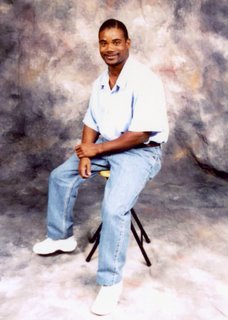Mass Arrests: A Call to Question
Stealth in the cover of darkness, they descend like a swarm of mad hornets clad in full riot gear, guns drawn, battering rams in the lead, ordering everybody down.
Police raids, sweeps and outright invasions have become so frequent around the country, like fierce hurricanes, they’re given names: Operation Shield, Operation Clean Streets, and so on.
These aggressive, action-packed maneuvers, conducted by local, state, and federal police are usually found by a press conference describing the nature of the bust, the suspects arrested and the contraband seized. We’re all made to feel safer; “Everything’s okay,” they say. But is it?
There are many untold problems associated with mass arrests. They’re typically based on profiling of some sort; relegated to a particular venue, racially confined, or perhaps used to target some other narrowly defined group.
Another troublesome aspect of these mass arrests is that they’re conducted by fallible souls: real people, some with deep biases, political and other aspirations and a very suspect history. Of course, not all cops are rogue, but it only takes a few. The LAPD’s Rampart disgrace here and the Abu Ghraib torture scandal abroad are a couple of recent examples of why police actions should be questioned.
Furthermore, as with every human endeavor, people simply make mistakes; and on the flip side, there’s always somebody in the wrong place at the wrong time. Not to mention it’s just bad business to arbitrarily label sums of people who reside in select geographical boundaries or persecute people belonging to a distinct group or who share the same way of life.
President Bush was quick to remind us of this point last January during a news conference. ABC’s Martha Radditz asked Bush about allegedly cozy-looking pictures taken of him with former kingpin-lobbyist and admitted defrauder Jack Abramoff. Bush adamantly down played the link, retorting that pictures don’t mean anything. Irony and truth make his statement evident when one thinks of the satellite pictures his then secretary of state, Colin Powell, used to convince the world that an invasion on Iraq would be justified. In the end, the pictures didn’t mean anything.
Apparently, individual members of the Republican party share the president’s view on the inherent unfairness of generalizations—at least when it comes to them. Still, they’re quick to label immigrants criminals, make “terrorists” of untried detainees; and I have yet to see them consistently define what a gang member is, though they’ve initiated a wide law enforcement net over thousands of mainly minority youths—under the political spotlight of media cameras.
Yet with each of their former colleagues named in one corruption scandal after the next, they’ve responded with distance and asserted distinction. The latest is that of Mark Foley (R) of Florida accused of harassing under-aged House pages with unwanted sexually explicit internet messages – a federal crime.
By far the most unsettling aspect of mass arrests is their preluding pattern to genocide. Whether we’re talking about the mass round-up of Africans during the trans-Atlantic slave trade, the thousands of Armenians collected for slaughter from 1915 to 1923, the millions of Jews, Blacks and Christians killed in the 1930s holocaust or the 900,000 massacred Rwandan Tutsis in 1994, these mass actions of evil needed questioning and intervention.
Likewise with the Afghans and others detained in Cuba’s American occupied Guantanomo Bay, or the thousands of Sudanese being massacred and displaced as I write, they need more questioning and intervention now.
Meanwhile, the inhumane history of mass arrests and our moral fortitude compel us to be suspect of these actions; demanding public and highly scrutinized trials that go beyond reliance on emotion-evoking labels, underhanded tactics, or mere circumstantial evidence.
So the next time you hear about police raids on gangs, the homeless or immigrants, hold your applause until after you ensure subsequent fair and transparent trials. Only in a true and genuine democracy is it the people’s responsibility to make certain checks and balances are a reality by questioning its public servants.
Sources:
Sources:
Martha Radditz, ABC News, January 26, 2006
Linda Feldman, “Political Fallout of Foley’s Resignation,” Christian Science Monitor, October 2, 2006: P. 3
Linda Feldman, “Political Fallout of Foley’s Resignation,” Christian Science Monitor, October 2, 2006: P. 3


0 Comments:
Post a Comment
<< Home